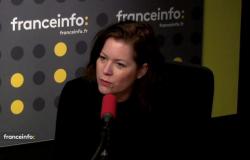The end-of-year holidays mark a peak of activity for doctors on call, but a dispute persists with insurers around the emergency tax of 40 francs, considered excessive. A partial agreement was announced, without resolving the conflict.
At the end of last week, doctors and insurers published a joint press release, announcing a “solution” concerning the flat rate of 40 francs, supposed to compensate the doctor's inconvenience in the event of an urgent consultation or visit outside of usual hours.
>> Read more: Agreement reached between the FMH and prio.swiss regarding the emergency tax
This formulation suggested a complete resolution of the conflict. However, a careful reading shows that the agreement concerns only one aspect: it will now allow employed doctors to charge this tax like self-employed ones.
Limited progress, since this technical issue was not at the heart of the tensions that have shaken the medical world in recent months. Threats of bankruptcy or strike, widely relayed in the media, remain without concrete response.
Retroactive reimbursements
The crux of the problem lies in the decision rendered this summer by the Federal Court, authorizing insurers to demand the retroactive reimbursement of five years of emergency taxes in certain cases. The press release does not allay concerns on this subject.
According to two private medical centers interviewed by RTS, there remains “too much uncertainty” to assess the consequences of this partial agreement. The terms and conditions have not been made public and medical practices without their own institutional representation must be content with the four-paragraph press release.
Between the lines, it appears that insurers will not give up their right to seek reimbursements when billing is deemed “abnormally high” and “systematic”. An approach perceived as unfair by many doctors on duty.
Divergence of interpretation on the emergency
For insurers, only cases of proven emergency justify the tax of 40 francs. An ear infection without an appointment on Christmas Day does not, according to them, fall into this category, unlike a suspected stroke.
Doctors reject this strict interpretation. Working outside of usual hours — evenings, weekends or public holidays — involves specific constraints, which, according to them, justify this additional compensation.
Without this tax, professionals warn, clinics risk closing, forcing patients to turn to hospitals that are already saturated. However, private medical centers play a key role in absorbing part of the demand, in particular thanks to redirections carried out by the hospitals themselves.
The legal battle continues
Faced with criticism, several private medical practices have mandated a prestigious law firm to defend their model. Meanwhile, negotiations between insurers and doctors continue. They want to agree by the end of January on a new emergency billing model, which would come into force in 2026.
Romain Carrupt/exercise






